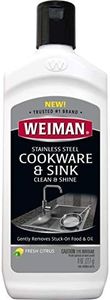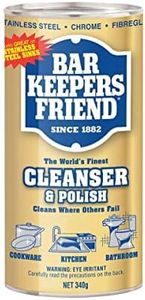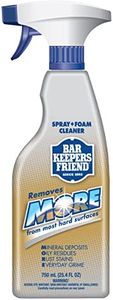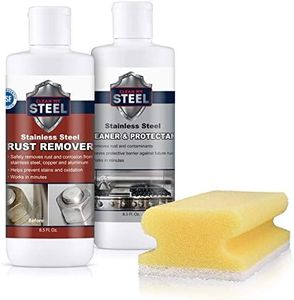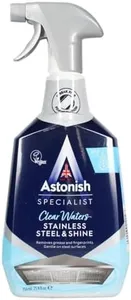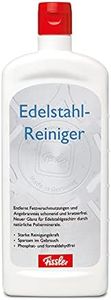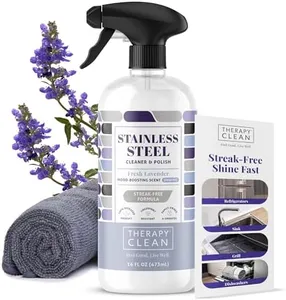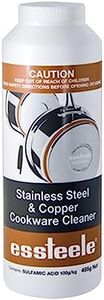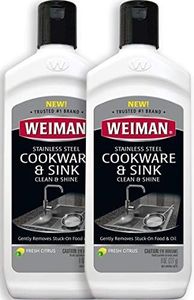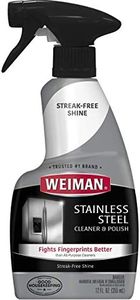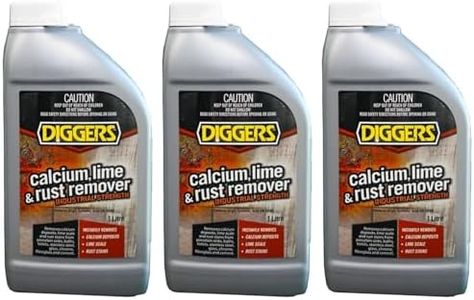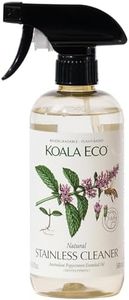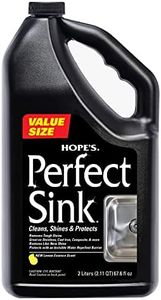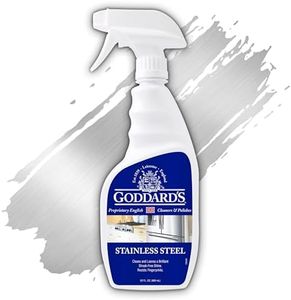We Use CookiesWe use cookies to enhance the security, performance,
functionality and for analytical and promotional activities. By continuing to browse this site you
are agreeing to our privacy policy
10 Best Stainless Steel Cleaners
From leading brands and best sellers available on the web.By clicking on a link to a third party's website, log data is shared with that third party.
Buying Guide for the Best Stainless Steel Cleaners
Choosing the right stainless-steel cleaner can make a big difference in keeping your appliances, cookware, and fixtures looking shiny and new. Since stainless steel is prone to fingerprints, smudges, and sometimes streaking, the right cleaner should effectively remove marks without damaging the surface or leaving residue. Your intended use—whether it's for quick touch-ups or deep cleaning—should help guide your choice. Remember to always read labels and test a small area first to ensure compatibility.Type (Spray, Wipes, Cream, or Powder)The form of the cleaner greatly affects how easy it is to use and where it's most effective. Sprays are popular for large surfaces because they offer quick and even coverage, making them good for appliances and countertops. Wipes are convenient for smaller jobs and quick clean-ups, especially in kitchens or for daily maintenance. Creams and powders can be better for stubborn stains and spots since they typically offer more scrubbing power, but they may require more effort to rinse off and could be messier. Pick a type based on the size of the surface, how quickly you want to complete the cleaning, and whether you need intensive cleaning or just a light touch-up.
Residue and Streak-Free FormulaOne of the key qualities to look for in a stainless-steel cleaner is its ability to clean without leaving streaks or residue. Products that claim to be streak-free are designed to give your surfaces a bright, even shine, avoiding watermarks and film. Cleaners that leave residue or streaks can actually make your appliances look worse. If you often notice fingerprint marks or dullness after cleaning, consider a formula that specifically promises a residue-free result. This is especially important for visible appliances like fridges or dishwashers where shine matters most.
Cleaning vs. Polishing AbilitySome stainless-steel cleaners are formulated primarily for cleaning (removing dirt, grease, and fingerprints), while others also polish the surface for a shiny, protected finish. Cleaning-focused products are best if you deal with heavy grime or frequent messes, while polishers are ideal if you want to enhance the shine and add a protective layer against future smudges. Many products now combine both effects, but it's useful to know which aspect you need most based on your cleaning habits and the surfaces you maintain most frequently.
Fragrance and SensitivityFragrance in stainless-steel cleaners can range from strong chemical scents to mild, fresh, or even unscented formulas. While a pleasant scent can make cleaning more enjoyable, those with sensitivities or allergies may opt for fragrance-free varieties. If you or your family are sensitive to certain smells, or if you’re cleaning in a food prep area, choosing a low-odor or unscented cleaner is a wise move. Always check the label for allergens if this is a concern in your household.
Ingredient Safety and Eco-FriendlinessSome stainless-steel cleaners contain harsh chemicals, while others use more natural or biodegradable ingredients. If you are environmentally conscious or worried about harsh cleaners around children or pets, look for products labeled as non-toxic or eco-friendly. These usually avoid ingredients that can cause harm to you or the planet, though they may sometimes require a little more effort or elbow grease to work as effectively as stronger chemical options.
